Over Sir John’s hill,
The hawk on fire hangs still;
In a hoisted cloud, at drop of dusk, he pulls to his claws
And gallows, up the rays of his eyes the small birds of the bay
Dylan Thomas
*
Wales is a land of poets. As far back as the sixth century, the Welsh bard Taliesin is known to have performed his work for kings and princes, entertaining them with such riproaring works as The Battle of Argoed Llwyfain and Death Song for Owain ab Urien; not exactly cheerful stuff but this was the fashion of the day and his talent made Taliesin as famous as the men he sang about and for. Although his name is one of the few remembered from those dark ages it’s likely that every noble worth his salt had his own poet, to celebrate his victories and lament his defeats – it was a bit like having a PR guru. Just imagine Donald Trump’s current lackey declaiming his daily deeds in verse, or Dmitry Peskov belting out the details of Vladimir Putin’s meetings as though he were in Russian opera…

By the 13th century, court bards had attained high status and were regarded as important members of a royal household. As the Welsh scholar Gwyn Jones puts it, they were “men at the heart of affairs, not eaters of broken meats at the outward end of a prince’s table.” All things come to an end, though; Prof Jones argues that the defeat and execution of Llywelyn ap Gruffydd at the hands of the English in 1282 was not just the death of independent Wales but also of formal court poetry. After all, there were no longer any Welsh princely courts…probably one of the last examples of this particular type of art form was the anguished lament composed by Llywelyn’s poet Gruffudd ab yr Ynad Coch on the assassination of his Prince; though you and I may feel this borders on hysteria, at the time it exactly summed up the terror and uncertainty felt by the Welsh in the face of absolute conquest, and remains famous to this day.
Do you not see the rush of wind and rain?
Do you not see the oaks lash each other?
Do you not see the ocean scourging the shore?
Do you not see the truth is portending?
Do you not see the sun hurtling the sky?
Do you not see that the stars have fallen?
Have you no belief in God, foolish men?
Do you not see that the world is ending?
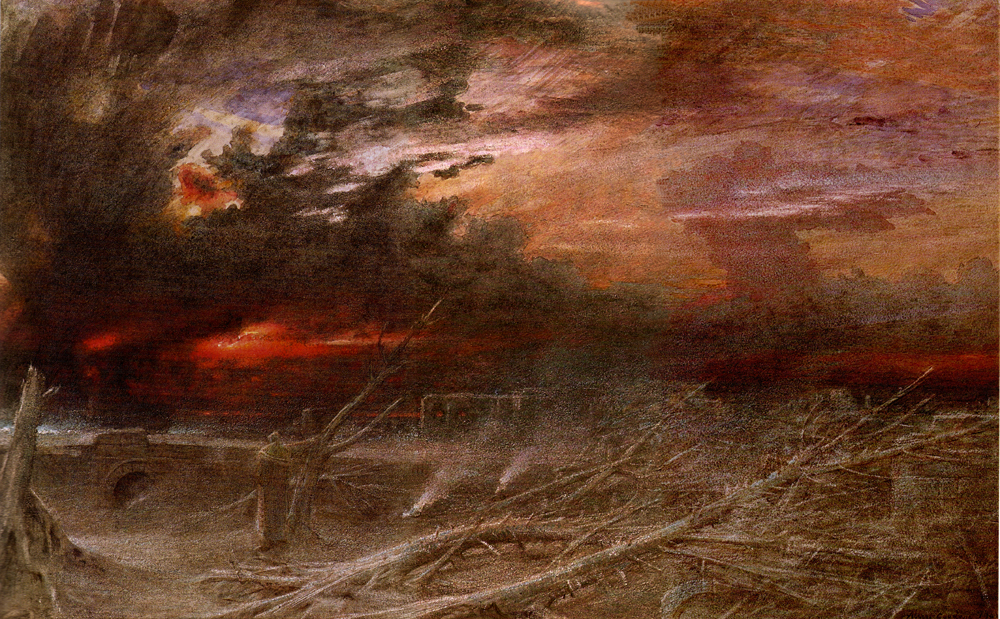 Apocalypse by Albert Goodwin, surely the scenario imagined by Gruffudd ab yr Ynad Coch
Apocalypse by Albert Goodwin, surely the scenario imagined by Gruffudd ab yr Ynad Coch
Poetry slowly but surely became less about dynastic struggles and violent deaths, and more about everyday life. In the 15th century there emerged a master who wrote brilliantly about nature and human emotions – especially love. Dafydd ap Gwilym’s spirit, energy and sense of humour shine through over six hundred years after his death. This is a translation by Rolfe Humphries of the beginning of one of his works, The Girls of Llanbadarn.
I am one of passion’s asses
Plague on all these parish lasses!
Though I long for them like mad
Not one female I have had,
Not a one in all my life,
Virgin, damsel, hag or wife.
What maliciousness, what lack,
What does make them turn their back?
Would it be a shame to be
In a bower of leaves with me?
That could have been written last week – I can picture Robbie Williams singing it. And it’s probably worth noting that far from being ignored by the female sex, Dafydd had quite the opposite reputation and once famously penned a ditty to his own…manhood…
Time to move on, I think, to one of the Welsh wordsmiths of our own time (almost), and arguably the most famous: Dylan Thomas. He’s a particular favourite of mine, as you may have noticed. Over three decades ago Mr B and I went to Laugharne, where Thomas once lived, wrote and caused havoc. We weren’t there to search out the famous man though – we were there to attend a wedding. We were running late and the only thing I can really recall about the day is that for some reason we ended up with the bride and groom in our car. Before delivering Charlie and Siân to the reception (and no, I can’t remember where that was) we called at the local hospital so that Siân could go in and show her grandfather her wedding dress.
So about two weeks ago we headed west to revisit Laugharne, with Mr B insisting that as he ‘can’t stand poetry‘ he was just doing as he was told. When we set off our garden was bathed in sunshine and the sky above a beautiful blue. As we approached Brecon we couldn’t help but notice that there were clouds gathering around Penyfan and the sun had disappeared. Optimistically we decided that this was a temporary situation and that once we were past the hills of the central Beacons things would change again.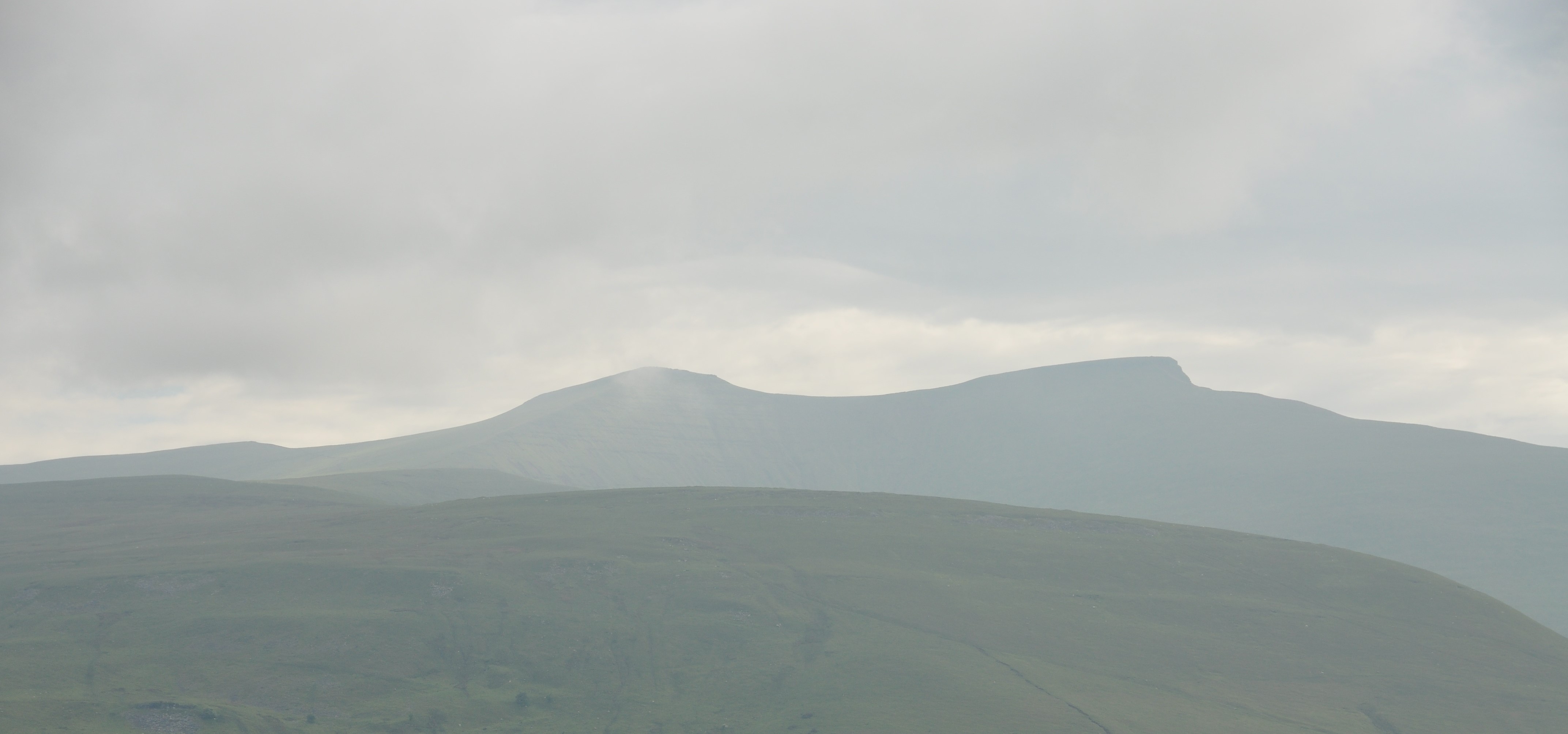
Things did change – they got considerably worse. By the time we reached Carmarthen, Merlin’s town, we could no longer see the horizon. I suppose we could have turned around but we were determined to ruddy well have a day out. Incredibly, although we could see sheets of rain to right and left of us, the road ahead remained dry. We drove into Laugharne, passing Brown’s Hotel sitting proudly on the main street, and then down to the car park next to the ‘castle brown as owls.’ The car park was free, which was a pleasant surprise, and a good thing too, given that I was inflicting poetry and dodgy weather on my driver.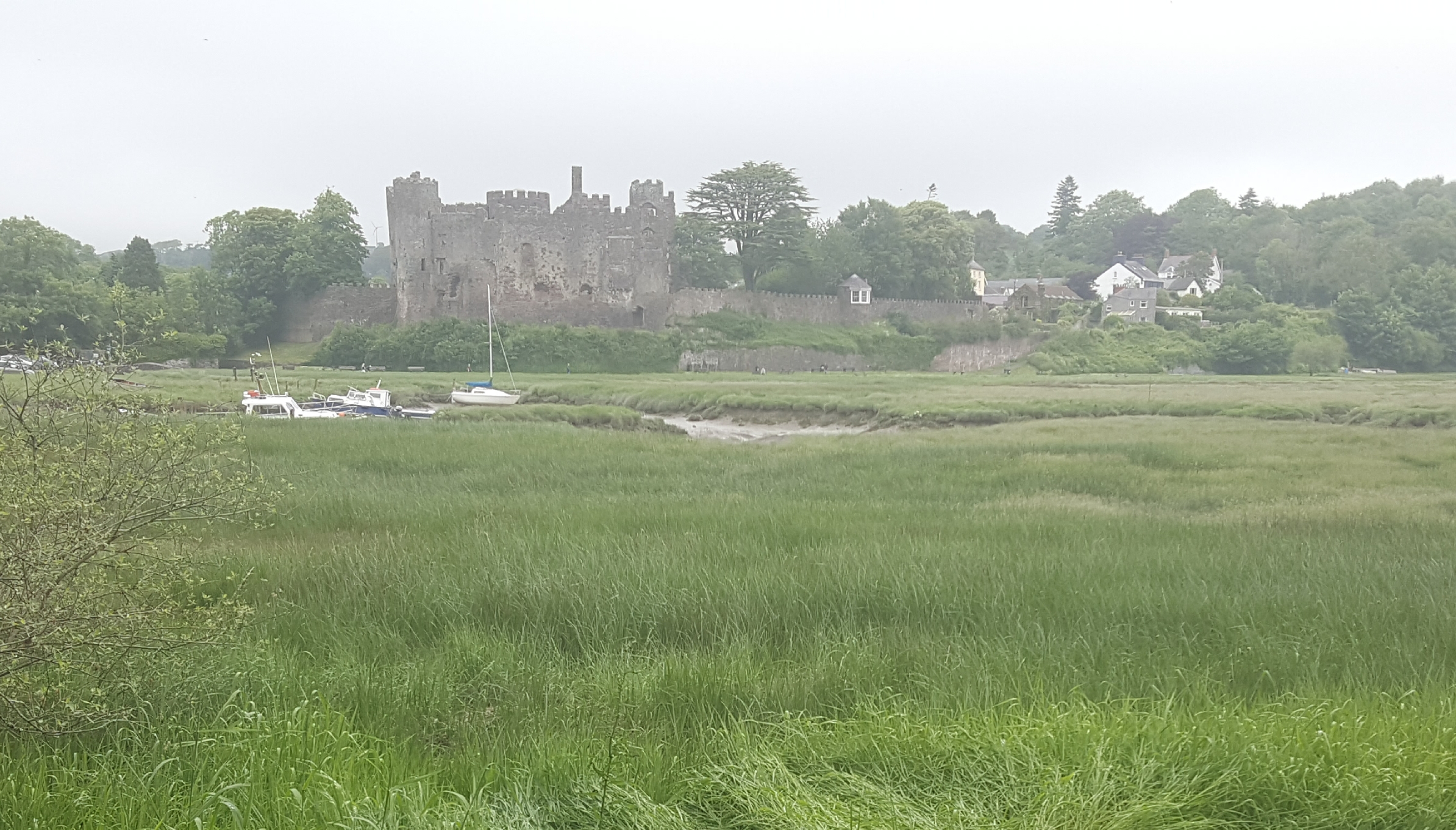
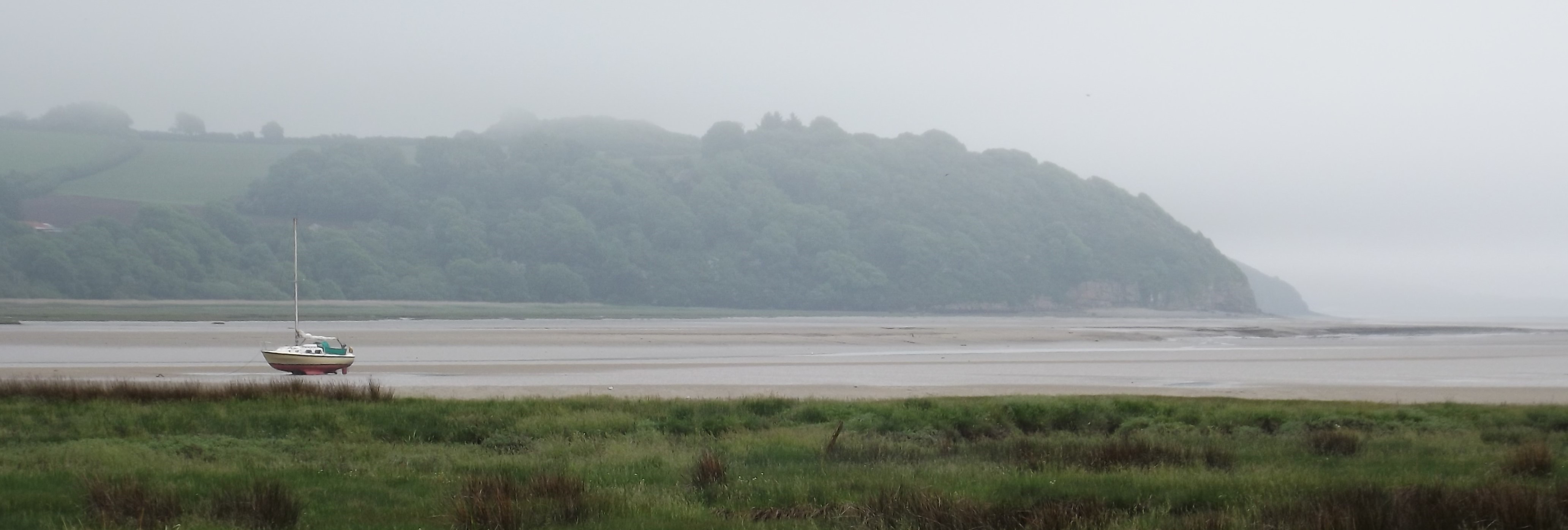
We walked along the foreshore and up the cliff steps, past Thomas’s Writing Shed and on to the Boathouse. The views from here are wonderful and I don’t think they’ve changed at all since the genius himself sat here and looked out across the estuary. After a quick beer we tackled the walk up onto St John’s Hill where we felt a few raindrops, though not enough to turn us around. From here we could now look across the water at the Boathouse and it was a real treat to see a heron flying over the shore, just as Thomas must have done.  Thomas’s writing shed
Thomas’s writing shed
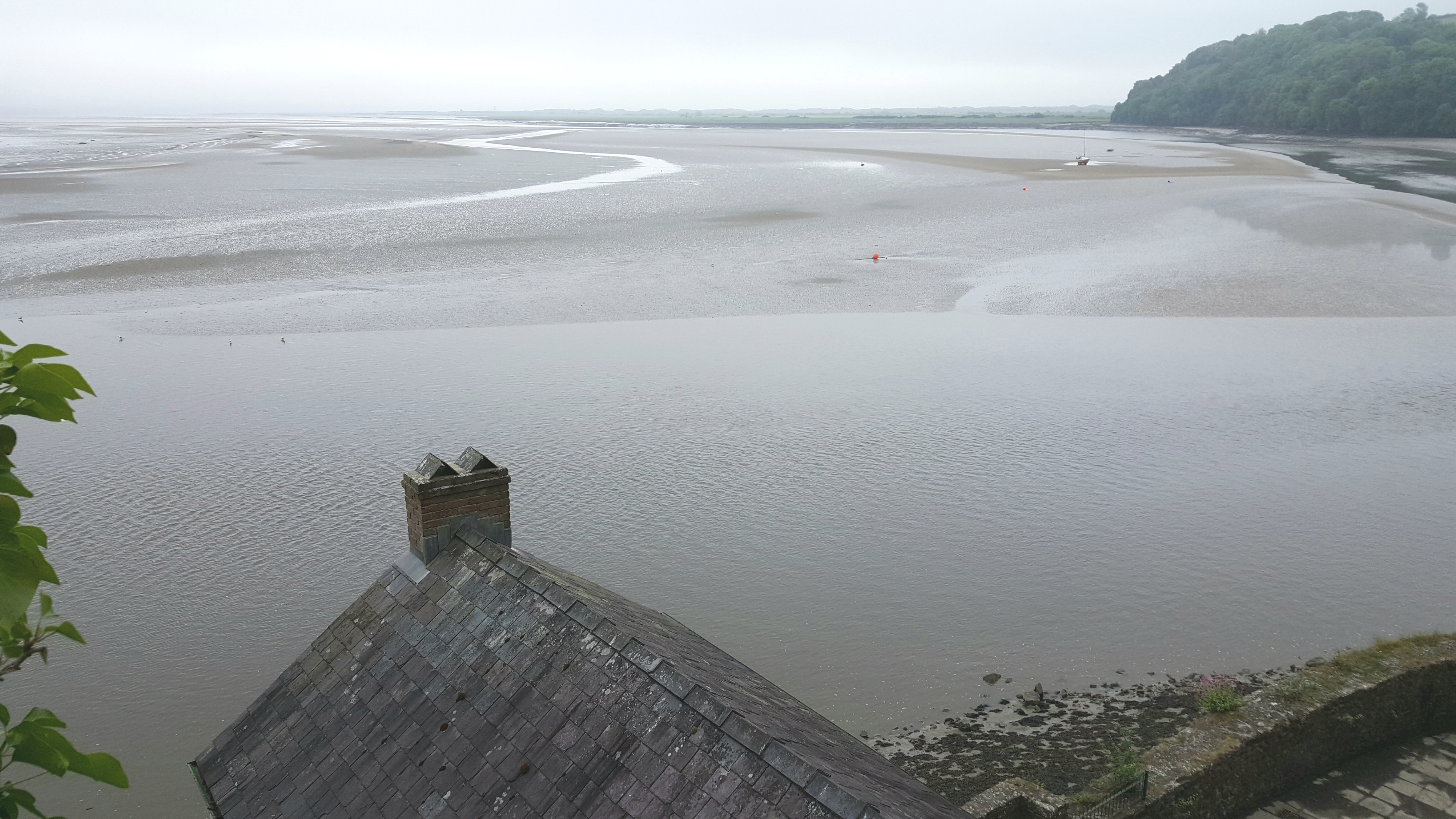 The view across the Tâf estuary from above the Boathouse
The view across the Tâf estuary from above the Boathouse
 Looking across to the Boathouse from St John’s Hill. The Boathouse is the small white building right on the shoreline
Looking across to the Boathouse from St John’s Hill. The Boathouse is the small white building right on the shoreline
Before leaving Laugharne we stopped at St Martin’s Church to visit the poet’s grave. He’s buried on the hillside, more-or-less in the centre of the burial ground and his wife Caitlin shares the space with him for eternity. On the way home I tortured Mr B by reading Thomas’s ‘Poem in October‘ aloud, to refrains of “Please stop! I can’t stand poetry!” And he doesn’t know it yet (he will when he reads this) but there’s another visit on the list…Dafydd ap Gwilym is buried at the ruined abbey of Ystrad Fflur in Ceredigion.
Driving through Carmarthenshire we passed several businesses called ‘Red Dragon blah blah‘ , ‘The Prince of Wales blah blah‘ or ‘St David’s blah blah blah.‘ Why on earth do we use the same name repeatedly? Cardiff, capital city of Wales and therefore guardian of the nation’s cultural heritage, has not one but two city centre malls called after the patron saint: St David’s and St David’s Two. What a dreary, dismal, depressing lack of imagination!
On the subject of names, recently there’s been a hoo-ha because our imbecilic Secretary of State decided unilaterally to rename the bridge across the River Severn estuary. I’m the first to admit that the original name ‘Second Severn Crossing‘ was hardly inspired, but do we really have to name something else after the Prince of Wales? Especially when some of us regretfully believe that the title died out in the 13th century? Surely to goodness there must be something else in this richest of languages that would be more eloquent? More extraordinary?
Wales was a land of poets…what ever happened?
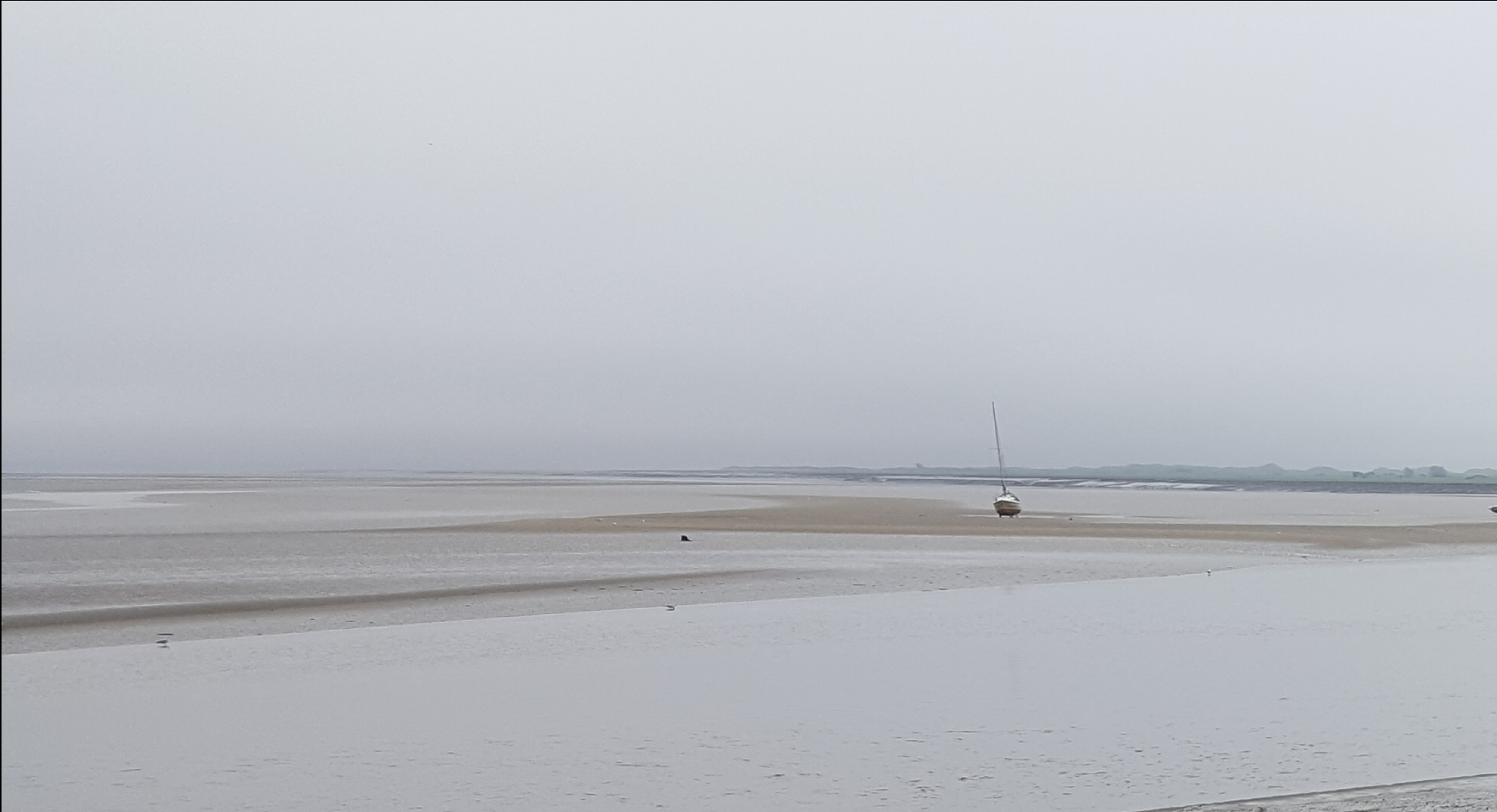
Mae hen wlad fy nhadau yn annwyl i mi
Gwlad beirdd a chantorion enwogion o fri
(Old land of my fathers is dear to me
land of poets and singers, celebrated by all)
Welsh National Anthem, lyrics by Evan James, music by James James
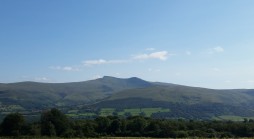

I watched mine a while ago but it may well be the same one. And yes – I know just what you mean about atmosphere. It wouldn’t feel right under blue skies and blazing sunshine 🙂
Absolutely agree about the lack of imagination with those names, Helen. Astonishing and deplorable! Lovely post as usual – and as usual, there’s always a wonderful backstory – how I’d love to know how the bride and groom ended up in your car! 😂 I saw a film on Thomas which left me with those wonderful views. Now if the powers that be were to sit in Dylan’s shed gazing at that view, I think they might find some suitably Welsh inspiration!
I watched a programme about Dylan Thomas last night, that I’d downloaded from BBC4 – I wonder if that was the one you saw?
It’s worth a trip but to be honest there’s not very much there. In a way I’m glad the weather was a little dreary because it made it so much more atmospheric!